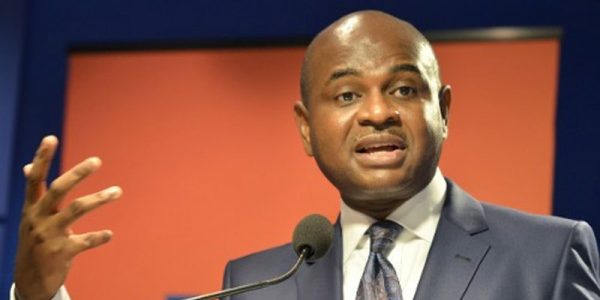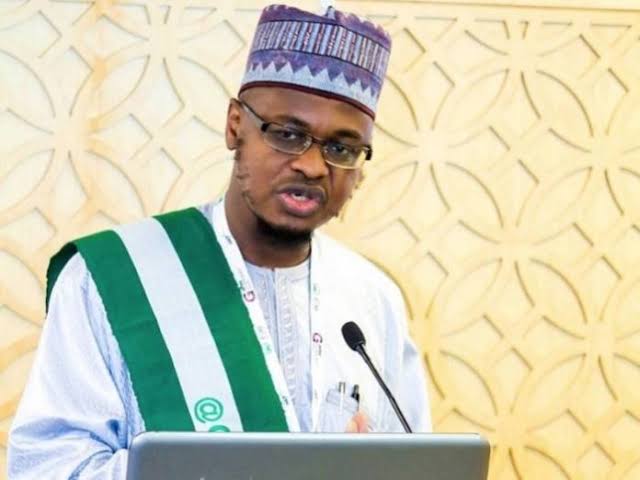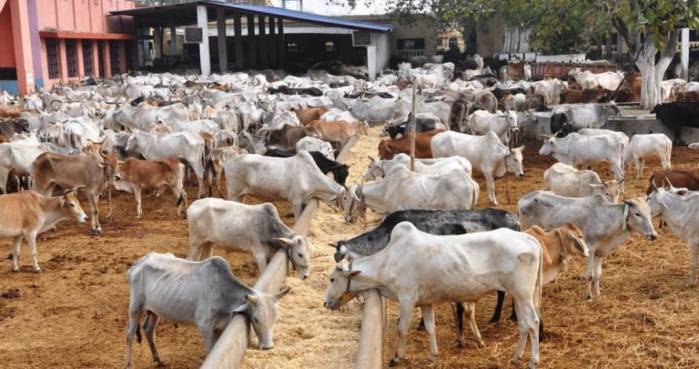Nigerians should make their votes count in next year’s election by using them to usher in a new set of elites led by a leader with a world view.
The call was made by Prof. Kingsley Moghalu, former Deputy Governor, Central Bank of Nigeria and a 2019 Presidential aspirant, while delivering a keynote address at the Niche 4th Anniversary lecture. The lecture was titled Development Reporting and Hysteria journalism.
He said the absence of a leader with a world view has been the major dividing factor in the country, stressing that in the absence of a world view, small views thrive.
He lamented that Nigeria has recycled politicians who do not believe in anything but bribe their way through with “stomach infrastructure which the people take and go to the toilet. The toilet being the only destination for stomach infrastructure.”
He called on the media to rise above the rot in the society and the myriads of challenges facing it to cause a positive change in national life.
In her opening remarks, Chairperson of the occasion Prof. Remi Sonaiya, Head, Dept. of Foreign Languages, Obafemi Awolowo University, Ile-ife, and also a Presidential aspirant urged the media to ensure that Nigerians know that they have credible options in the quest for leadership and to present such options to them.
She described the media as stakeholders in the country and the upcoming elections. The Prof of Linguistics saluted the industry and resilience of the Nigerian youth describing them as exemplary and exceptional and by no means lazy.
Representative of the Senate President, Mr. Ben Murray Bruce, in his comments commended the media for the real time reporting of the senate invasion on Wednesday, which he said could only have happened with some collusion.
Read also: Presidency warns against fake Zahra Buhari’s Facebook account
According to him, the media can make or mar and what it did on Wednesday was to promote the nation’s democracy.
Professor Ben Nwabueze , Elder statesman and foremost constitutional lawyer called on all well-meaning Nigerians to participate actively in the 2019 elections if Nigeria must survive. “The Nigerian today is not the Nigeria I grew up in. 2019 is important for everybody. All must go out and vote and decide whether this country stays together or breaks,” he said.
Speaking along the same line, another Elder statesman, Dr Uma Eleazu, a renowned technocrat said the time has come for a change in the country. “It is time for a paradigm shift, a change of our minds. For the older ones it is too late but among the younger ones there are those who can rule the country,” he declared.
He, however, expressed a lack of faith in the electoral processes insisting that the Independent National Electoral Commission (INEC) and the electoral system must be restructured before it can produce the right leaders. Failure to do that, he said, would allow the moneybags to continue with their practice of stomach infrastructure.
In the main lecture, Prof. Moghalu lamented that development reporting as well as investigative journalism were on the decline in the country though he acknowledged that media practitioners alone were not to blame for the decline but the society in general.
He decried the new trend in journalism, which he described as hysteria journalism. This, according to him, is “journalism which plays on the latent prejudices of readers,” with the effect of reducing public discourse to a shouting match and leaving the public less informed.”
According to him “hysteria journalism is a reflection of our country and the magnified fault lines that exist in it today. The destructive tone and divisive rhetoric of Nigeria’s political class is what is largely responsible for hysteria journalism in Nigeria today.”
He bemoaned the plight of journalists most of whom are owed salaries running into months and the resultant effects on the media. “Journalism in Nigeria has become a profession where you are not guaranteed the basics. The working conditions of many journalists in Nigeria are appalling. They are not given the support they need.
“In many outlets journalists go for months without pay, while their bosses live large. The result is that the media becomes real estate to be bought by the highest bidder, because people have to feed their families. The truth is that much, though certainly not all, of what appears in news media in Nigeria today is paid for. In this state of affairs, journalism does not perform a public good, and it cannot serve developmental ends,” he said.
In spite of these and other challenges facing the media, Prof. Moghalu challenged the media to rise above them and guide the nation on the right course.
The Presidential aspirant shared his vision for the media with the audience; “my vision for the Nigerian media is as a creator and promoter of a national philosophical worldview that permeates all aspects of our national life.”
Responding to the issue raised in the lecture, Mrs. Funke Egbemode, President, Nigerian Guild of Editors, told the gathering that the media industry especially the print was not about to get better due to lack of patronage.
According to her “you don’t produce what nobody is buying. People no longer buy Newspapers, but rather prefer to read for free while the advertisements are also no longer coming.
She pointed out that “less readers means less manpower and less revenue,” adding that “online is where the media industry is buried.”











